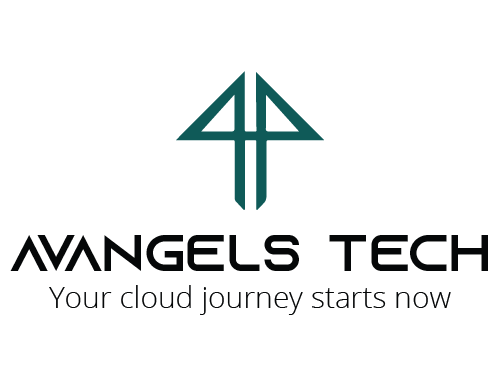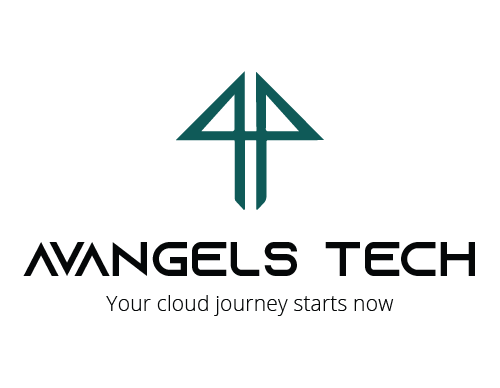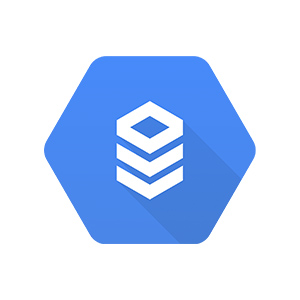Google Cloud SQL
A Powerful Relational Database Service
This series of blogs looks at some of the most popular and commonly used services on the Google Cloud Platform. In this blog, we discuss Google Cloud SQL.
Additional Reading
For more detailed documentation on “Google Cloud SQL”, please visit the official Google Cloud website.
For official documentation on “Cloud SQL for MySQL”, please visit the official Google Cloud website.
To get a deeper understanding of “Google Cloud Load Balancing”, please refer to the attached link.
To get more information on “Google Kubernetes Engine”, please refer to the attached link.
To get more information on “Google Compute Engine”, please refer to the attached link.
To get more information on “Google Cloud Functions”, please refer to the attached link.
To view more such blogs on “Google Cloud Services”, please refer the attached link.
Introduction
In today’s digital age, data is at the heart of every business operation. The ability to efficiently store, manage, and access data is crucial for maintaining a competitive edge. Google Cloud SQL is a powerful and versatile database service offered by Google Cloud Platform (GCP). Google Cloud SQL is a powerful, fully managed database service that simplifies database administration, scaling, and maintenance and enhances data security.
Google Cloud SQL, a fully managed relational database service, offers a powerful solution for handling your database needs. Managing and maintaining databases is critical for businesses of all sizes. Whether you’re a startup looking to scale your application or an established enterprise seeking robust database management, Google Cloud SQL has you covered. It’s a fully managed database service designed to make it easy to set up, manage, and scale relational databases with ease and efficiency.
In this comprehensive guide, we’ll dive deep into Google Cloud SQL, exploring its features, benefits, use cases, and how it can empower your organization’s data management needs.
What is Google Cloud SQL?
Google Cloud SQL is a fully managed relational database service that provides a seamless and hassle-free way to set up, manage, and maintain relational databases on Google Cloud. It supports popular database engines like MySQL, PostgreSQL, and SQL Server. Google Cloud SQL takes care of routine database administration tasks, such as patch management, backups, and high availability, allowing you to focus on your application development.
Google Cloud SQL is a fully managed, relational database service that simplifies database administration tasks, making it easier for businesses to set up, manage, and maintain their databases. Google Cloud SQL takes care of various database management tasks, such as provisioning, patch management, backups, and high availability, allowing developers and administrators to focus on building applications rather than managing the database infrastructure.
Key Features and Benefits of Google Cloud SQL
1. Fully Managed: Google Cloud SQL is a fully managed service, meaning that Google takes care of underlying infrastructure maintenance, including patching, backups, and updates. This allows your team to concentrate on developing applications instead of managing databases.
2. High Availability: Google Cloud SQL provides built-in high availability with automated failover. This ensures that your database remains accessible even in the event of hardware or software failures, minimizing downtime and ensuring uninterrupted access to your data.
3. Scalability: With Google Cloud SQL, you can easily scale your database resources up or down to accommodate changing workloads. Whether you need more CPU, RAM, or storage, you can make adjustments without significant downtime, ensuring your database performance matches your application’s demands. You can easily scale your database vertically by upgrading to more powerful machine types or horizontally by adding read replicas to distribute read traffic and improve performance. As your application grows, Google Cloud SQL can scale with you, ensuring your database performance remains optimal even during traffic spikes.
4. Security: Security is a top priority for Google Cloud SQL. It offers features like data encryption at rest and in transit, role-based access control, automated software patching, VPC peering, and network firewalls to protect your data. You can also integrate it with Google Cloud Identity and Access Management (IAM) for fine-grained access control. Additionally, Google Cloud SQL is compliant with various industry standards, and Google’s robust security measures help protect your data from threats.
5. Automated Backups: Google Cloud SQL automatically creates daily backups of your database and retains them for seven days, enabling point-in-time recovery to restore your database to a specific state. Point-in-time recovery enables you to restore your database to a specific state in case of data corruption or accidental deletion. This feature ensures data integrity and allows you to restore your database to a previous state if needed. You can also schedule automated backups to suit your needs.
6. Replication: You can set up replication for high availability or to offload read operations, improving overall database performance.
7. Integration: Google Cloud SQL seamlessly integrates with other Google Cloud services, such as Compute Engine, Google Kubernetes Engine (GKE), Google App Engine, Data Studio, and Google Cloud Functions, making it an excellent choice for building cloud-native applications. This tight integration simplifies application development and deployment, allowing you to focus on building great software.
8. Global Availability: Google Cloud SQL provides global availability, allowing you to deploy your databases in multiple regions around the world. This feature enables you to serve your customers with low-latency access to your data, no matter where they are located.
9. Simplicity: Google Cloud SQL abstracts the complexities of database administration, making it accessible to developers with various levels of expertise. Google handles database maintenance tasks, including patch management and updates, reducing the burden on your IT team. Organizations and teams can concentrate on building applications rather than managing infrastructure.
10. Cost Efficiency: Google Cloud SQL offers a pay-as-you-go pricing model, allowing you to scale your database resources as needed without incurring unnecessary costs. You only pay for the resources you use, which can help you optimize your database costs.
11. Data Import/Export: You can import and export data to and from Google Cloud SQL using various formats and tools, making it easier to migrate your existing databases or backup your data.
12. High Performance: It provides high-performance databases with options for SSD-based storage and in-memory caching, ensuring low latency and fast query execution.
13. Monitoring and Logging: Google Cloud SQL provides detailed monitoring and logging capabilities through Google Cloud Monitoring and Google Cloud Logging, helping you keep an eye on database performance, troubleshoot issues, and set up alerts for potential issues.
Use Cases for Google Cloud SQL
1. Web Applications: Google Cloud SQL is an ideal choice for web applications that rely on relational databases. Whether it’s a content management system, e-commerce platform, social networking site or a SaaS application, it can handle the data storage needs efficiently. It provides the scalability and high availability needed to handle the data storage needs and fluctuations in traffic.
2. E-commerce: E-commerce websites often have dynamic product catalogues, user profiles, and order management systems. Cloud SQL provides the necessary database infrastructure to handle these data-driven processes efficiently. It ensures high availability and scalability during peak shopping seasons.
3. Content Management Systems: CMS systems often use databases to store content, user data, and configurations. Google Cloud SQL can provide a reliable and scalable database backend for CMS applications. CMS platforms like WordPress, Drupal, or Joomla can benefit from Google Cloud SQL’s managed database service, ensuring the availability and performance of the backend database.
4. Analytics and Reporting: Organizations that require powerful analytical capabilities can benefit from Google Cloud SQL. It can store and manage large datasets, making it suitable for business intelligence and reporting applications. When combined with Google Data Studio, Dataflow, and BigQuery, Google Cloud SQL can be part of a powerful analytics and reporting pipeline, helping businesses gain valuable insights from their data.
5. Mobile Apps: Mobile apps often require a backend database to store user data, preferences, and other information. Google Cloud SQL can be easily integrated with mobile applications for seamless data synchronization.
6. Gaming: Game developers can leverage Google Cloud SQL for player profiles, game state synchronization, and leaderboard management in real-time and turn-based multiplayer games.
7. IoT Applications: Google Cloud SQL can handle data generated by Internet of Things (IoT) devices, providing a reliable storage solution for sensor data and analytics.
8. DevOps and Continuous Integration/Continuous Deployment (CI/CD): Google Cloud SQL can be a part of your DevOps pipeline, providing a reliable database backend for your application deployments and continuous integration workflows. Google Cloud SQL integrates well with CI/CD pipelines, allowing developers to easily manage database schema changes and ensure that development and testing environments are consistent.
9. Multi-Tenant Applications: For businesses running multi-tenant applications, Google Cloud SQL offers excellent isolation and security features to ensure data privacy among tenants.
10. Data Warehousing: While Google BigQuery is the primary choice for data warehousing on GCP, Google Cloud SQL can also be used for smaller-scale data warehousing needs.
11. Enterprise Applications: Businesses can rely on Google Cloud SQL to power various enterprise applications, including Customer Relationship Management (CRM) systems, Human Resources Management Systems (HRMS), and more.
12. Microservices: Supporting microservices architectures by providing each microservice with its own database instance, isolated for scalability and security.
Best Practices for Using Google Cloud SQL
1. Choose the Right Database Engine: Select the database engine (MySQL, PostgreSQL, or SQL Server) that best fits your application’s requirements.
2. Use Read Replicas: Implement read replicas to offload read-heavy workloads and improve database performance.
3. Regular Backups: Enable automated backups and practice regular database backups to protect against data loss.
4. Security: Implement strict access controls, encrypt data both at rest and in transit, and regularly review security configurations.
5. Monitoring and Logging: Set up monitoring and logging to keep an eye on database performance and troubleshoot issues proactively.
6. Scalability: Plan for scalability from the beginning and use vertical or horizontal scaling as needed to accommodate growth.
Getting Started with Google Cloud SQL
1. Create a GCP Account: Sign up for a Google Cloud Platform account if you haven’t already.
2. Enable the SQL Admin API: In the GCP Console, enable the Cloud SQL API.
3. Create a Cloud SQL Instance: Use the GCP Console or command-line tools to create a new Cloud SQL instance, choosing the database engine and configuration that suits your needs.
4. Configure Access: Set up security rules, access controls, SSL certificates, and encryption options to protect your database and data.
5. Connect to Your Database: You can connect to your Google Cloud SQL database using various methods, such as connecting from a local development environment, from a virtual machine, or from a Kubernetes cluster.
6. Import Data: You can import your existing database or create a new one within your Cloud SQL instance.
7. Develop and Deploy: Develop your applications and deploy them on GCP, integrating them with your Cloud SQL instance.
8. Configure Backups and High Availability: Set up automated backups and configure high availability options to ensure data protection and reliability.
9. Set Up Backups and Monitoring: Configure automated backups and monitoring to ensure the reliability and security of your database.
Conclusion
Google Cloud SQL is a powerful and versatile managed database service that can help organizations streamline database management, improve scalability, and enhance data security. Its fully managed nature allows developers and businesses to focus on building and deploying applications without worrying about the complexities of database administration. Whether you are running web applications, content management systems, or data analytics workloads, Google Cloud SQL offers a reliable and scalable database solution within the Google Cloud ecosystem. So, consider giving it a try and experience the benefits of a managed relational database in the cloud.
Google Cloud SQL is a fully managed database service that simplifies the process of running, scaling, and securing relational databases in the cloud. Its seamless integration with other Google Cloud services, high availability, scalability, and security features make it an excellent choice for a wide range of applications and use cases. With features like high availability, security, and seamless integration with other Google Cloud services, it’s a valuable tool in the GCP ecosystem. By following best practices and tailoring its usage to your specific use cases, you can harness the full potential of Google Cloud SQL for your organization’s database needs.
In conclusion, Google Cloud SQL simplifies database management, offering a fully managed, secure, and highly available relational database service that seamlessly integrates with other Google Cloud services. Whether you’re a startup looking to build scalable web applications or an enterprise seeking to modernize your data infrastructure, Google Cloud SQL is a powerful tool that can help you achieve your goals. Embrace the cloud-native approach to database management with Google Cloud SQL and unlock the potential for innovation and growth in your organization.


